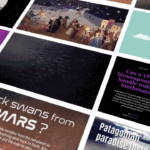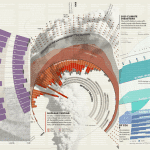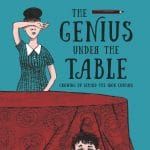The 2017 Nobel Peace Prize and the Doomsday Clock
By Dan Drollette Jr | May 11, 2018

Those who read the Bulletin’s bi-monthly magazine, previously known as the journal, will be aware of the difficulty that some anti-nuclear weapons campaigners have had in convincing the world that nukes are a medical problem. As Helen Caldicott—one of the many people behind the Physicians for Social Responsibility—put it in an interview for our April issue (which is free to access through June), “nuclear power and nuclear waste are medical problems … [which] will create the final medical epidemic for the human race.”
The activists held symposia about what the medical effects of nuclear war would be, at various universities— “Although afterwards,” Caldicott noted, “journalists did say: ‘Just what are doctors talking about this for, this is a political issue.’ ”
But that perception in the popular press may change, after the on-line publication of the lead article in the latest issue of the esteemed New England Journal of Medicine. Titled “The 2017 Nobel Peace Prize and the Doomsday Clock—the end of nuclear weapons or the end of us”, the article traces the history of the Clock, and notes the many medical practitioners who were influenced by the Clock over the years, including Albert Schweitzer. Written by Dr. Tilman Ruff (founding Chair of the International Campaign to Abolish Nuclear Weapons), Setsuko Thurlow (who co-accepted the 2017 Nobel Peace Prize on behalf of the International Campaign to Abolish Nuclear Weapons) and Dr. Lachlan Forrow (who spent more than 20 years on the governing Board of the Albert Schweitzer Hospital in Lambarene, Gabon), the article goes into the folly of even a so-called “limited” nuclear war involving less than one percent of the world’s current stockpile of nuclear weapons, in which an estimated 2 billion lives could be lost from the aftereffects.
The print version will come out in June.
Publication Name: New England Journal of Medicine
To read what we're reading, click here
Together, we make the world safer.
The Bulletin elevates expert voices above the noise. But as an independent nonprofit organization, our operations depend on the support of readers like you. Help us continue to deliver quality journalism that holds leaders accountable. Your support of our work at any level is important. In return, we promise our coverage will be understandable, influential, vigilant, solution-oriented, and fair-minded. Together we can make a difference.
Topics: What We’re Reading















